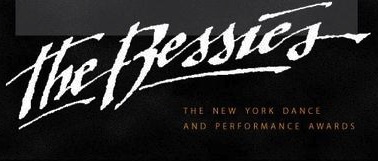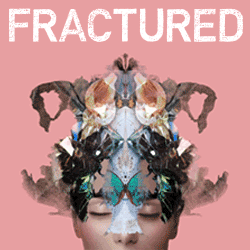The Bessies Awards Honor Steve Paxton and Movement Research
Friday, September 18, 2015
The Bessies Awards Honor Steve Paxton and Movement Research
 New York, NY September 18, 2015 – The NY Dance and Performance Awards, The Bessies, New York City’s premier dance awards honoring outstanding creative work in the field, announce 2015 special awards: Legendary dancer/choreographer and postmodern dance pioneer Steve Paxton will receive the 2015 NY Dance and Performance Award for Lifetime Achievement in Dance, and Movement Research, one of the world’s leading laboratories for the investigation of dance and movement-based forms, will receive the 2015 NY Dance and Performance Award for Outstanding Service to the Field of Dance. The two awards will be presented at the 31st Annual Bessie Awards ceremony on Monday, October 19, 2015, at the legendary Apollo Theater in New York City.
New York, NY September 18, 2015 – The NY Dance and Performance Awards, The Bessies, New York City’s premier dance awards honoring outstanding creative work in the field, announce 2015 special awards: Legendary dancer/choreographer and postmodern dance pioneer Steve Paxton will receive the 2015 NY Dance and Performance Award for Lifetime Achievement in Dance, and Movement Research, one of the world’s leading laboratories for the investigation of dance and movement-based forms, will receive the 2015 NY Dance and Performance Award for Outstanding Service to the Field of Dance. The two awards will be presented at the 31st Annual Bessie Awards ceremony on Monday, October 19, 2015, at the legendary Apollo Theater in New York City.
Steve Paxton is a groundbreaking artist whose investigations into movement forms have helped expand and transform what is possible in dance. His influence on and contribution to postmodern and contemporary dance span more than 50 years. Paxton danced with José Limón’s company in 1960 and was a member of the Merce Cunningham Dance Company from 1961 to 1964. He was a founding member of the seminal dance collectives Judson Dance Theater (1962−64) and Grand Union (1970−76). Several of Paxton’s early works were created from pedestrian, everyday activities—an approach to movement that challenged the established parameters of dance, opening up new ideas for the art form. Paxton, along with his colleagues, questioned the prevailing aesthetic of modern dance, reshaping expectations of dance creation and performance. His singular exploration of improvisation has opened up new ideas for creating and composing choreographic work. In 1972, Paxton developed and named the dance form known as Contact Improvisation, a fluid form that uses shared weight and momentum to explore the relationship between dancers. Paxton freely shared this form with the dance world, and it is now practiced, taught, and performed globally. In 1986, he began developing Material for the Spine, another important technical approach to moving and thinking about dance.
Lucy Sexton, Executive Director of The Bessies, says, “Paxton’s rigorous investigations of the body, in its architecture and its personhood, has influenced generations of dance makers, and continues to challenge and delight audiences around the world. We are thrilled to be honoring this movement hero.”
Paxton’s work has recently been presented at Dia:Beacon (2014); 9th International Contemporary Dance Festival, Venice (2014); Walker Art Center, Minneapolis (2013); Tanz im August, Berlin (2013); and the Museum of Modern Art, New York (2012), among other venues. He is the recipient of numerous awards including the Golden Lion for Lifetime Achievement from the 2014 Dance Biennale in Venice and a 1995 John Simon Guggenheim Memorial Foundation Fellowship. He has received two Bessie Awards, one in 1987 for Collective Work/Part/The Goldberg Variations at The Kitchen, and the other in 1999 for ASH at Danspace Project. He has been a contributing editor to Contact Quarterly and published the DVD Material for the Spine in 2008. Paxton continues to lecture, choreograph/perform, and teach throughout the world.
Movement Research, founded in 1978, is a creative incubator that supports individual artists, creative process, and emerging ideas that advance contemporary dance languages and related forms. A catalyst for innovation, inquiry, and dialogue, Movement Research is dedicated to the creation and implementation of free and low-cost programs that nurture and instigate discourse and experimentation through a range of activities, from its publications Critical Correspondence and The Performance Journal, to its many performance-based programs, including the Monday night series Movement Research at Judson Church, to its artist-in-residency program, partnerships with public schools, and classes and workshops with leading dance practitioners.
Movement Research programs publicly proclaim the importance of process and demonstrate the values of innovation and risk-taking by providing a supportive and fertile environment for research and experimentation. Movement Research strives to stimulate and disseminate dialogue and interactions across dance, other art forms, and the civic community and to reflect the cultural, political, and economic diversity of its moving community.
“Movement Research is nothing short of a miracle: a true community-based and –run organization that fosters intellectual and physical movement investigation at the highest level,” says Sexton. “It serves the field and moves the field of adventurous contemporary dance and performance forward each year.”



